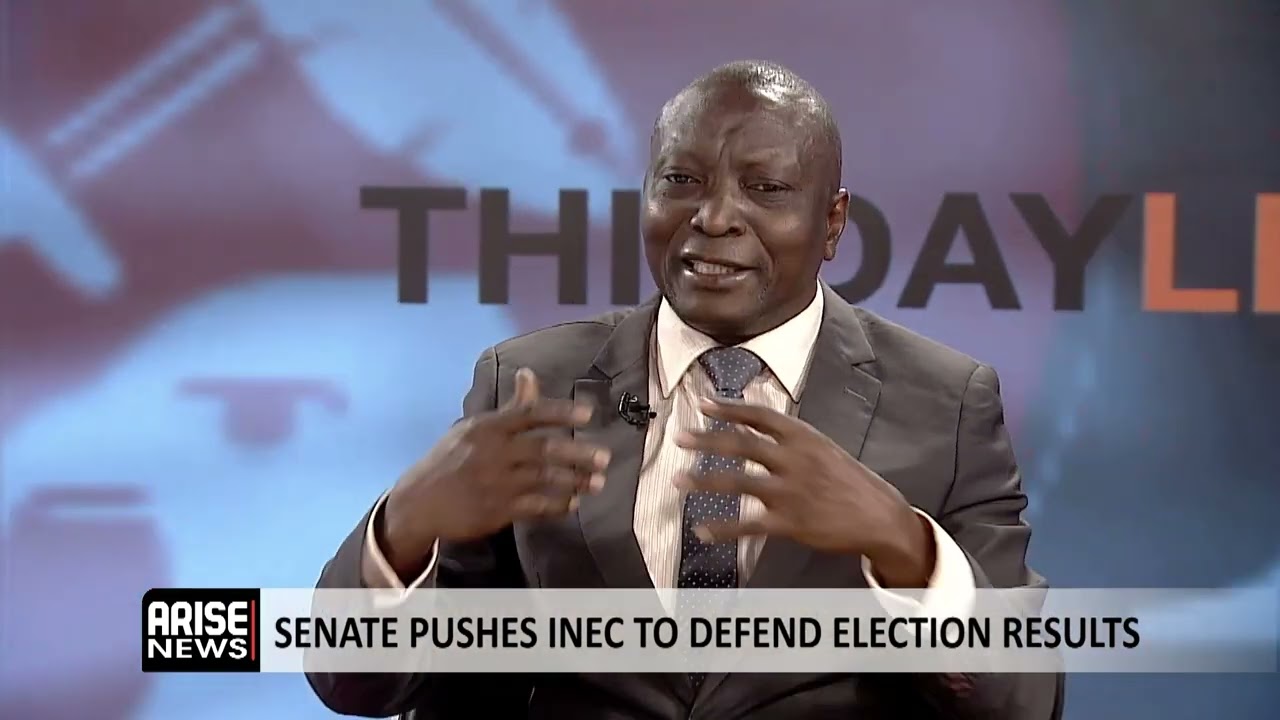
Professor of International Relations and Strategic Studies at the University of Lagos, Prof. David Aworawo, has said that the recent change of service chiefs by President Bola Tinubu will not lead to any meaningful improvement in Nigeria’s security situation unless the root causes of insecurity are properly addressed.
Speaking on ARISE News on Sunday, Prof. Aworawo said that while the reshuffle may appear decisive, it risks being “merely cosmetic” if the same structural problems within Nigeria’s security architecture persist.
“I want to assume that the change of service chiefs was motivated by a desire to improve security, not because of coup rumours,” he said. “But changing service chiefs alone will not dramatically improve security unless the fundamentals are addressed.”
He noted that the situation in parts of the North has deteriorated, with renewed insurgent activity.
“If you go to the Northeast, Boko Haram has suddenly found a new lease of life. In Bama and other areas, they are back,” he said. “The Northwest is also still in chaos. So we must understand and deal with the roots of the crisis.”
According to him, peacebuilding requires identifying the underlying drivers of conflict in each region.
“The Northwest has criminal gangs, the Northeast has religious fundamentalists, while the Southeast faces separatist agitation. You must understand the dynamics before you can resolve them,” he explained.
Aworawo stressed that the government must first acknowledge the reality of religiously motivated killings, particularly targeting Christians, and not dismiss them as general insecurity.
“Yes, criminals are killing everyone, but there are also targeted attacks on Christians and priests. To solve this, you must first admit it exists, then combine kinetic and non-kinetic approaches like deradicalisation,” he said.
He added that underfunding, poor equipment, and lack of motivation among troops continue to hinder military performance.
“I was embarrassed when a man climbed an Armoured Personnel Carrier during a demonstration and nothing happened. It shows operational weakness,” he said. “Meanwhile, Boko Haram is now using drones extensively, while our military still struggles with basic equipment.”
The professor also called for greater accountability regarding the financing of terrorist activities.
“Why have the funders of these groups not been identified and brought to justice after all these years?” he asked. “Other countries have done this successfully. Nigeria must do the same.”
Turning to the issue of elections, Prof. Aworawo said Nigeria will not achieve credible polls until the Independent National Electoral Commission (INEC) fully enforces transparency measures.
“When Nigerians are ready for credible elections, there will be credible elections,” he said. “INEC must insist that results not transmitted electronically from polling units be rejected. If anyone tampers with the devices, elections in those areas should be nullified and reconducted.”
He cited examples from Malawi, where a presidential election was annulled in 2020 due to irregularities.
“The courts cancelled the result after finding excessive alterations, and the rerun produced a new leader peacefully. That’s the kind of electoral integrity Nigeria needs,” he added.
On global issues, Aworawo condemned Cameroon’s President Paul Biya, who has been in power since 1982, for clinging to office despite signs of electoral defeat.
“At his age, he should be at home reading newspapers and enjoying his grandchildren, not still struggling to stay in power,” he said. “The world must continue to pressure him to step aside peacefully.”
He also described former French President Nicolas Sarkozy’s imprisonment as a “powerful message” to world leaders.
“Power is transient. When you are in office, do well, so that when you leave, you can face any inquiry with confidence,” Aworawo stated.
Concluding, Prof. Aworawo advised Nigerian law enforcement agencies to see peaceful protesters as allies rather than adversaries.
“The police must be retrained to view citizens who protest as partners in building a better country, not as threats,” he said. “We must move from a mindset of ‘us versus them’ to one of collaboration if we want a stable system.”
Boluwatife Enome


